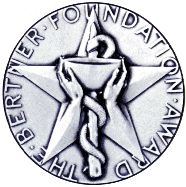Research Symposium Marks 50th Year of Scientific Exchange
 The 50th
Annual Symposium on Fundamental Cancer Research scheduled this fall continues a tradition
that was started before M. D. Anderson was built.
The 50th
Annual Symposium on Fundamental Cancer Research scheduled this fall continues a tradition
that was started before M. D. Anderson was built. Research Symposium Marks 50th Year of Scientific Exchange
 The 50th
Annual Symposium on Fundamental Cancer Research scheduled this fall continues a tradition
that was started before M. D. Anderson was built.
The 50th
Annual Symposium on Fundamental Cancer Research scheduled this fall continues a tradition
that was started before M. D. Anderson was built. Return to
Fall 97